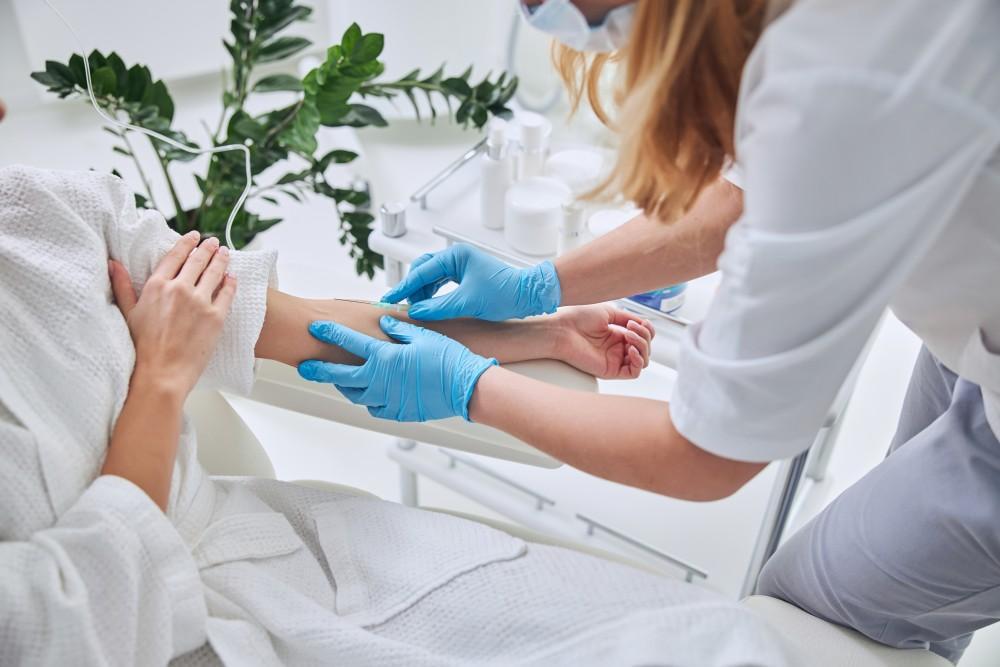
4 Chronic Pain Conditions That Prolotherapy Can Address

The connection between the population in the United States and chronic pain is a strong one — 1 in 5 adults have chronic pain and, sadly, more than 7% report high-impact pain that’s significantly limiting their lives.
Unfortunately, many pain management options simply mask the symptoms without addressing the underlying problem. Here at HealthFirst, Dr. Jonathan Singer aims to take a much healthier and sustainable approach to pain management by focusing on healing.
One of the most effective tools in our treatment arsenal when it comes to chronic pain caused by musculoskeletal damage is prolotherapy. Here’s a look at how it works and 4 common conditions it can help heal.
How prolotherapy works
Prolotherapy isn’t a new treatment — the practice has been around for decades — and the method behind it is quite simple. With prolotherapy, we inject a sugar (dextrose) solution into the area where you have damaged tissues. Your body registers the dextrose as an irritant and initiates an inflammatory response that speeds up healing.
In many ways, prolotherapy is a regenerative medicine, as it relies on your body’s own natural healing resources to do the work. In our opinion, this is preferable to interventional techniques like surgery.
Some common conditions that respond well to prolotherapy
Musculoskeletal damage is an awfully broad category so we want to provide you with a few examples where prolotherapy works well, including:
Arthritis
More than 92 million people in the US have doctor-diagnosed arthritis or arthritis symptoms with joint pain and inflammation. This is an area where prolotherapy excels because the protective tissues inside your joints — cartilage — don’t regenerate well. With prolotherapy, we can create a call for resources that will help heal the damaged tissues to reduce your discomfort.
Ligament or tendon damage
Prolotherapy is also a great treatment for damaged ligaments or tendons. Perhaps your chronic pain stems from an old ligament tear in your knee or you’re prone to tendonitis in your shoulder. Whatever the connective tissue problem, prolotherapy can create an environment that’s focused on healing rather than one that’s stuck in a painful, inflammatory response.
Bursitis
Some of your joints, such as your hips, shoulders, and the balls of your feet, feature small, fluid-filled sacs called bursae. These sacs are designed to provide cushioning within your joint, but if the sacs become inflamed, you can be left with chronic pain.
Through prolotherapy, our goal is to reduce the inflammation and return your bursa sac to its duties in a healthy joint.
Back pain
If you’re one of the millions of people who suffer from chronic back pain, it may well be worth your while to look into prolotherapy. At our practice, we use prolotherapy to resolve ligament issues (such as lumbosacral ligament dysfunction), muscle strains, sacroiliitis, and tendinosis in your glutes.
If you want to explore whether prolotherapy can play a role in helping to resolve your chronic musculoskeletal pain, please contact one of our offices in Greenwood Village, Colorado, or Cheyenne, Wyoming, to schedule an appointment.
You Might Also Enjoy...


5 Surprising Benefits of Ozone Therapy

6 Early Signs of Lupus

3 Reasons to Consider Prolotherapy for Chronic Pain

What Is Alternative Cancer Therapy and How Does It Work?

